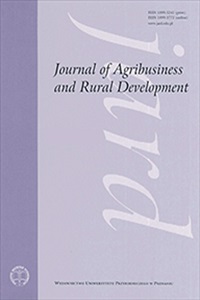Barriers to institutional adoption of new products innovation: A Case of precooked beans among schools in Rwanda
The concept of precooked beans was introduced in Rwanda in 2009, to counteract the disadvantage of too much energy and time consumption associated with dry beans preparation. However, their adoption has been dismal and little is known on the possible causes of this. Therefore, the purpose of this paper is to identify constraints impeding the adoption of precooked beans among secondary boarding schools in Rwanda. A multistage sampling procedure was used to interview 64 caterers of secondary boarding schools. Descriptive statistics were used to analyze constraints hindering the adoption of precooked beans among schools. Also, logistic regression was used to analyze factors influencing the willingness to adopt precooked beans in schools. The results showed 7 major
constraints encountered by secondary boarding schools in adopting precooked beans and 5 factors statistically influencing the willingness of schools to adopt precooked beans. The study concluded that the lack of sufficient information, higher price, unavailability, distrust in sustainability claims, lower
nutritional value, inconvenient packaging and inadequate storage are the major barriers to adoption of precooked beans in schools. Therefore, this study recommends producers of precooked beans to consider the abovementioned barriers in setting their marketing strategy to enhance the consumption
of precooked beans among schools.

